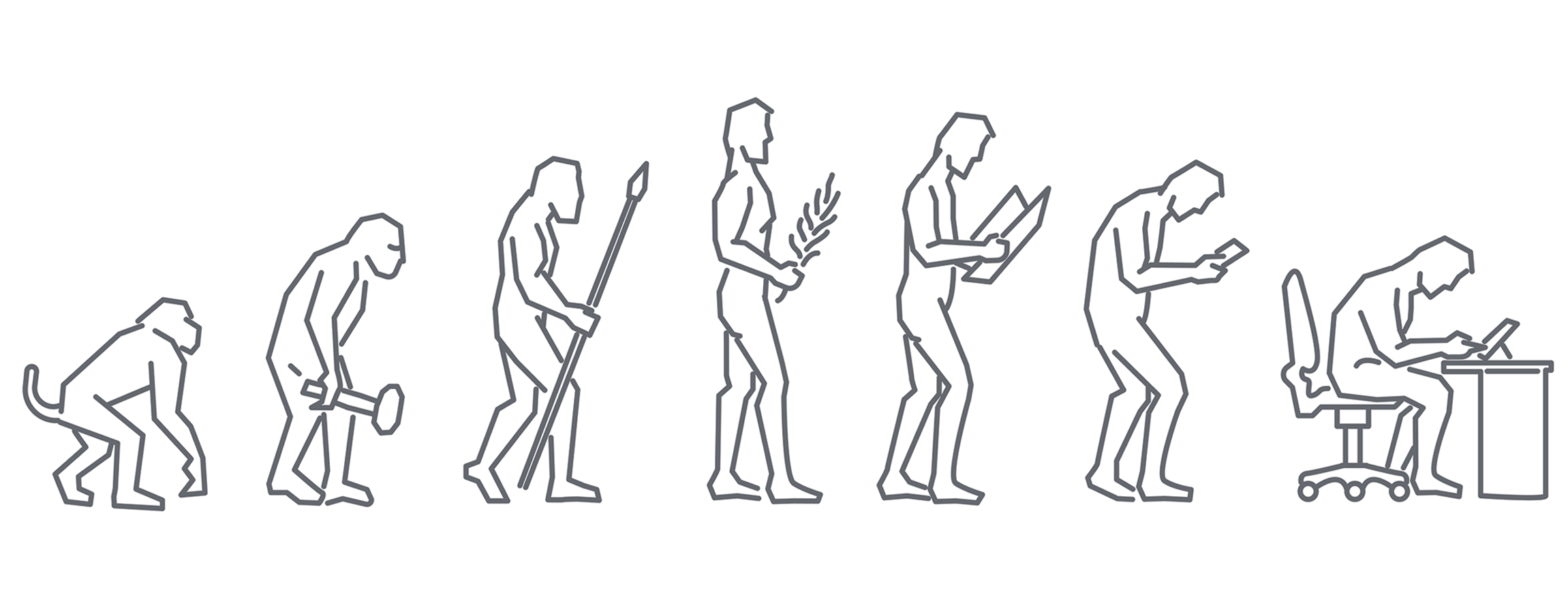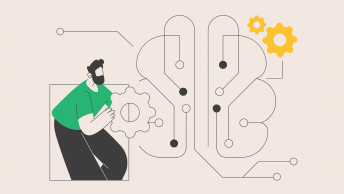“May you live in interesting times” is an old Chinese proverb that is more of a curse than a wish for good times to come. The times we live in are certainly interesting. Technology is advancing so rapidly that we can live in several different realities in one lifetime. We have another great challenge ahead of us related to the fastest technological advance in our history. In this regard, we need the best and broadest education to help us all realize what awaits us in the future. This is the purpose of this series of articles – to summarize what we already know and provide a glimpse into the near future. The topic of AGI (Artificial General Intelligence) is so complex and vast that it is impossible to cover in a single article, so it will be divided into a series of articles in which I will talk about individual aspects. AI is (and AGI will be) the most prominent invention we’ve made so far, and will define who we are as humans in the coming years. If you ask why? You’re in the right place.
Let’s start by defining what AI and AGI are and their differences.
Artificial Intelligence (AI) is typically focused on solving specific problems, while AGI is designed to be able to solve any problem that a human can solve. AI systems are generally perceived as being less “intelligent” than an adult human (edit: the moment I wrote these words, Deep Mind AlphaGeometry – an AI system solved complex geometry problems at a level of a human Olympiad gold medalist, so the second part of this definition may be already outdated)
, while:
Artificial General Intelligence (AGI) systems are designed to be at least as intelligent as humans (predictions are that they will be much more intelligent). AGI represents human cognitive abilities in software so that the AGI system can find a solution when faced with an unfamiliar task. As we can see from the example of the definition of AI. This technology is evolving so fast that we even have a problem with good definitions of these phenomena. It’s not the years or months that matter; it’s the change happening before our eyes, literally within days. This is by far the most rapidly evolving technology humanity has ever encountered.
Evolution through technology
I have written numerous times on this blog that our final step in evolution will be technology. Artificial intelligence (AI and AGI) confirms this thesis. It is the most important invention of mankind since we invented the wheel and fire, and it will change the way we exist.
Why is it so important to us? AI is already affecting all areas of our lives, with the most crucial for our being in 21 century – the man-made artificial world – the Internet.

Our evolution does not take place on the physical level; we do not gain more muscles because there is no reason to; our brain is already big enough to solve problems that no other animal on earth can solve. Nor do we grow taller in order to climb more efficiently. The evolution that is taking place before our eyes defines who we will be as a species in the years and generations to come.
As you read these words, many of you will argue that we’ve had technology in the past that was supposed to dramatically change our behaviour as a species, and it hasn’t. My opinion is that the last great shift was when smartphones were invented and we embrace them as a natural extension of our brain. But the difference between AI/AGI and any other technology is fundamental. For the first time in our history as a species, we are working on something we do not fully understand and over which our control will be negligible. Assuming we reach the point in history where a conscious AGI emerges – and it will be many times smarter than our understanding of the world, processes and reality which surrounds us. How will we communicate with it and get it to cooperate with us if we operate on a lower level of understanding of everything?
Why AGI will change everything?
The impact of artificial intelligence on our lives is already profound. Beyond the algorithms that recommend our next favourite TV show or song, AI is delving into content creation. From generating music compositions to writing articles, AI systems contribute to creative processes, blurring the lines between human and machine-generated content. In the vast expanses of farmlands, AI is transforming agriculture. Surprisingly, AI-powered drones equipped with advanced imaging sensors analyze crop health, optimize irrigation, and even predict crop yields. The result? A more sustainable and efficient approach to farming.In the realm of healthcare, AI is revolutionizing personalized medicine. By analyzing individual genetic data, AI can predict susceptibility to certain diseases, recommend tailored treatment plans, and even assist in the discovery of novel drugs, marking a significant paradigm shift in healthcare. Beyond the confines of Earth, AI plays a pivotal role in space exploration. Autonomous rovers on Mars, powered by AI, navigate the Martian terrain, make decisions, and conduct experiments, showcasing how AI is contributing to our understanding of the universe. And I only mentioned a small fraction of the time when AI is helping us in our journey.
It’s hard to imagine what will happen in months (not to mention several years), especially when AGI sees the light of day. For the first time in history, in a few months, we are changing the reality we live in, and the progress of development is geometric. Every day, more and more tools are being developed that will amaze us with AI capabilities. One could even say that we are in technological shock, unable to keep up with the adoption of more and more discoveries.
The race for AGI
It’s no surprise that major companies are competing with each other in the race to contract the most perfect AI/AGI. This will give them competitiveness ahead of others and better position them in the market. For now, in my opinion, the leader is Microsoft, which has devoted enormous resources not only to work on its own AI, but has purchased a majority stake in Open AI and de facto controls them (although no one officially admits it). Let’s take a look at the list of leaders and one black horse, which doesn’t seem to be doing much in this field, although this is only an appearance. And 2024 could be a breakthrough year for this company. I’m talking about Apple, of course.
- OpenAI and GPT Series: OpenAI, founded to ensure that AGI benefits all of humanity started as open source, but then they changed the course and currently the API is closed and they are charging for it. Microsoft own the majority of shares in the company. Their flagship product, the GPT (Generative Pre-trained Transformer) series, is probably the most known AI model worldwide. OpenAI continues to push the boundaries with projects like Codex, which is focused on programming, and DALL-E, an AI capable of generating images from textual descriptions.
- Google and DeepMind: Google, through its subsidiary DeepMind, has been at the forefront of AGI research. DeepMind’s AlphaGo famously defeated world champion Go players, demonstrating the capacity of AI to master complex strategic games. DeepMind’s AGI project, known as “MuZero,” aims to create a model that can learn the rules of a game and play it at a superhuman level without prior knowledge. Google’s TensorFlow, an open-source machine learning framework, is a testament to their commitment to advancing the broader AI ecosystem.
- Microsoft and Azure AI: Microsoft, owns major shares of OpenAI and with its Azure AI platform, is actively contributing to AGI research. It’s definitely one of the leaders in the race.
While not explicitly focusing on AGI in the same vein as OpenAI or DeepMind, Microsoft’s Azure AI serves as a comprehensive suite of tools and services, enabling developers to build and deploy powerful AI applications. Microsoft’s investments in language models, reinforcement learning, and natural language processing underscore their commitment to shaping the future of AGI. - Facebook (Meta) and FAIR: As Facebook transitions into Meta, its AI research division—Facebook Artificial Intelligence Research (FAIR)—remains a key player in the AGI landscape. FAIR is engaged in advancing the frontiers of AI research, with projects encompassing computer vision, natural language processing, and reinforcement learning. While Meta’s vision extends beyond traditional AGI pursuits, its commitment to AI research positions it as a formidable player in the quest for broader AI capabilities.
- Amazon and AWS AI: Amazon, through its cloud computing arm Amazon Web Services (AWS), is a significant player in the broader AI domain. While Amazon may not have a dedicated AGI project like some of its counterparts, its AWS AI services provide a comprehensive suite of tools for machine learning and AI development. Amazon SageMaker, Amazon Comprehend, and Amazon Polly are among the services contributing to the democratization of AI capabilities. Although Amazon’s focus extends beyond AGI, its influence on AI accessibility and adoption cannot be understated.
- Apple Edge AI and SiriKit: Apple, has been a pioneer in integrating AI into its products working on SIRI Kit. Apple’s developer framework for Siri, allows third-party apps to integrate with Siri, opening avenues for AI-driven voice interactions. While many look at the company asking why they do not have heavy push towards AI Apple is playing it’s own game – Edge AI. Completly different approach than any other players. Apple’s solution is to compute LLM (Large Language Model) based on computing power of the devices while the others are using Cloud computing (which has many disadvantages). It makes completely sense, but required a lot of computing power. That is why Apple is investing heavily in its infrastructure to create computer chips.
Positive and negative scenarios for AGI
Let’s not kid ourselves – we are not the best species on earth. Since the dawn of time, we have been exploiting each other, killing for profit, exploiting the Earth without limits, polluting, and killing other weaker species like other animals and plants. Looking from the level of a divine being (if such a being exists), I would strongly consider giving us a free hand to choose and make a plan for the future. At the level of a being who understands far better the processes that govern the world, I would prefer to make decisions for us (in the best-case scenario – for our good).
So, when we consider the directions, I see two scenarios:
- The AGI will cooperate with us at the level of our understanding (while it is almost certain that we will not understand its intentions) and will support our development as a species.
- AGI will not be interested in our development and well-being as it is and will do everything to change the game’s rules and bring our behaviour in line with better norms.
And here is the key question – what do “better norms” mean for AGI, because they do not have to coincide with our expectations at all.
Who will make a call?
If we assume that AGI will be many times smarter than the most intelligent person – the main question is – how do we want to communicate with it and convey our thoughts? And then when we will be able to formalize our thoughts we need to formulate the goal. Some of them are simple, but some of them are more complex since we differ as people, and our goals are often unclear or often contradictory. Is it possible at a particular stage of its development, we won’t be able to articulate our needs? In my opinion, the answer is – yes. We could have a barrier to vocalize our needs. Also, when we are talking about language – it might be the case if we use AGI in the communication process. Language, as we have used it for centuries, will evolve into something different. Maybe we should stop talking to each other rather than pass the data in the layer of communication.
Decision shift
The fundamental difference between using AI and AGI is that it is now up to humans to decide what to use AI for to achieve a specific goal. The moment we discover AGI – it will be the AGI that takes a decisive role. And this factor makes a huge change.
Looking at the most critical areas of our lives, AGI will affect the most important areas, which I will describe in detail in subsequent articles:
- Evolution of Work/Businesses/Economy
- Evolution of Wellbeing (Medicine, entertainment)
- Evolution of Culture
- Evolution of Ethics
The future of living with AGI
Like it or not, our future as a species is tied to the development of this technology, and everyone, without exception, should keep a close eye on its development. What is undoubtedly wise is that more and more people are beginning to take an interest in its regulation. However, this will only be possible until a certain point in its development, the so-called breaking point. When the technology will be self-determining and decide the directions of development. This will undoubtedly happen in our lifetime, so perhaps it is worth considering now what we are doing with our lives and in what direction we as a species are evolving.
A true God of technology predictions – Ray Kurzweil, in his book Singularity, predict that the breakpoint of AGI will be in 2029, and by 2045, AGI will be a super being. Until now, this futurologist was 86% (yes, the number is correct), correct in his predictions. And this time, he is not the only one confirming that AI and AGI will take over and completely reformulate us as humans.
More articles on related topics will follow.




